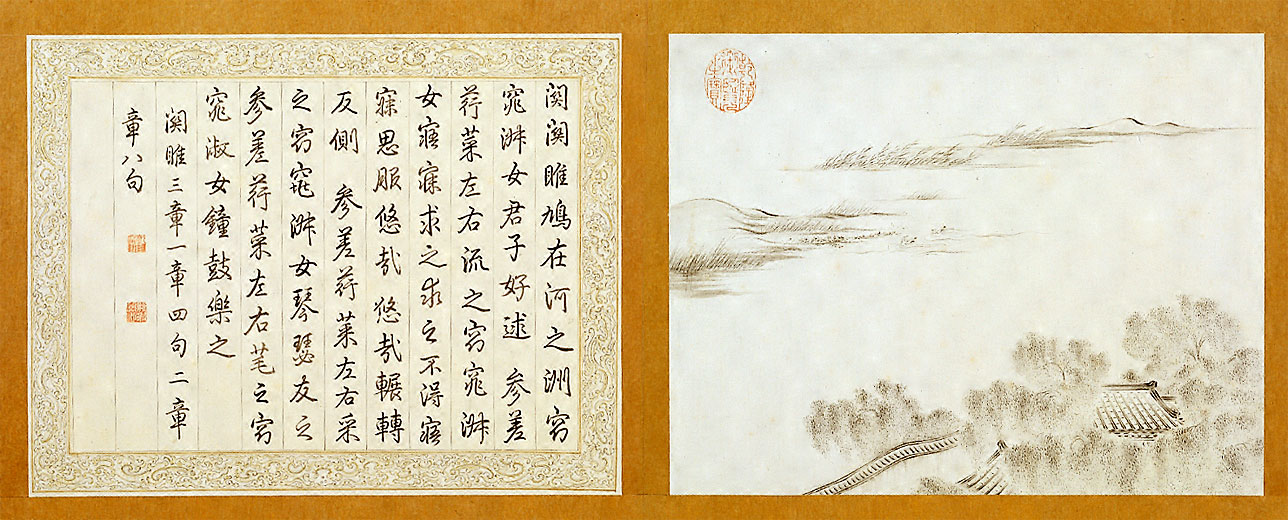
Classic of Poetry
The Classic of Poetry, also Shijing or Shih-ching, translated variously as the Book of Songs, Book of Odes, or simply known as the Odes or Poetry (詩; Shī), is the oldest existing collection of Chinese poetry, comprising 305 works dating from the 11th to 7th centuries BC. It is one of the "Five Classics" traditionally said to have been compiled by Confucius, and has been studied and memorized by scholars in China and neighboring countries over two millennia. It is also a rich source of chengyu (four-character classical idioms) that are still a part of learned discourse and even everyday language in modern Chinese. Since the Qing dynasty, its rhyme patterns have also been analysed in the study of Old Chinese phonology.
"Shijing" redirects here. For other uses, see Shijing (disambiguation).Name[edit]
Early references refer to the anthology as the 300 Poems (shi). The Odes first became known as a jīng, or a "classic book", in the canonical sense, as part of the Han Dynasty's official adoption of Confucianism as the guiding principle of Chinese society. The same word shi later became a generic term for poetry.[1] In English, lacking an exact equivalent for the Chinese, the translation of the word shi in this regard is generally as "poem", "song", or "ode". Before its elevation as a canonical classic, the Classic of Poetry (Shi jing) was known as the Three Hundred Songs or the Songs.[2]
Authorship[edit]
Although the Shijing does not specify the names of authors in association with the contained works, both traditional commentaries and modern scholarship have put forth hypotheses on authorship. The "Golden Coffer" chapter of the Book of Documents says that the poem "Owl" (鴟鴞) in the "Odes of Bin" was written by the Duke of Zhou. Many of the songs appear to be folk songs and other compositions used in the court ceremonies of the aristocracy.[11] Furthermore, many of the songs, based on internal evidence, appear to be written either by women, or from the perspective of a female persona. The repeated emphasis on female authorship of poetry in the Shijing was made much of in the process of attempting to give the poems of the women poets of the Ming-Qing period canonical status.[23] Despite the impersonality of the poetic voice characteristic of the Songs,[24] many of the poems are written from the perspective of various generic personalities.